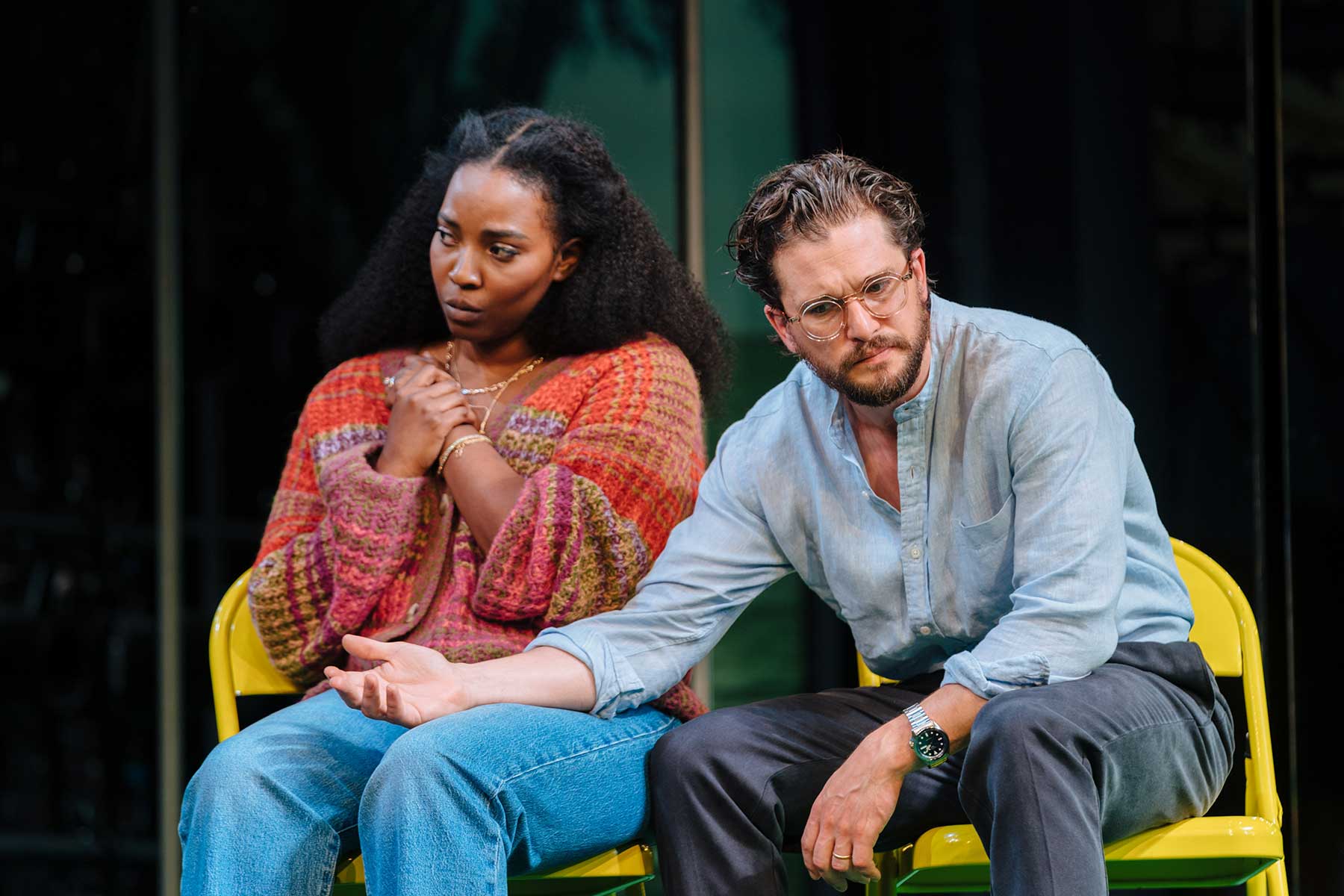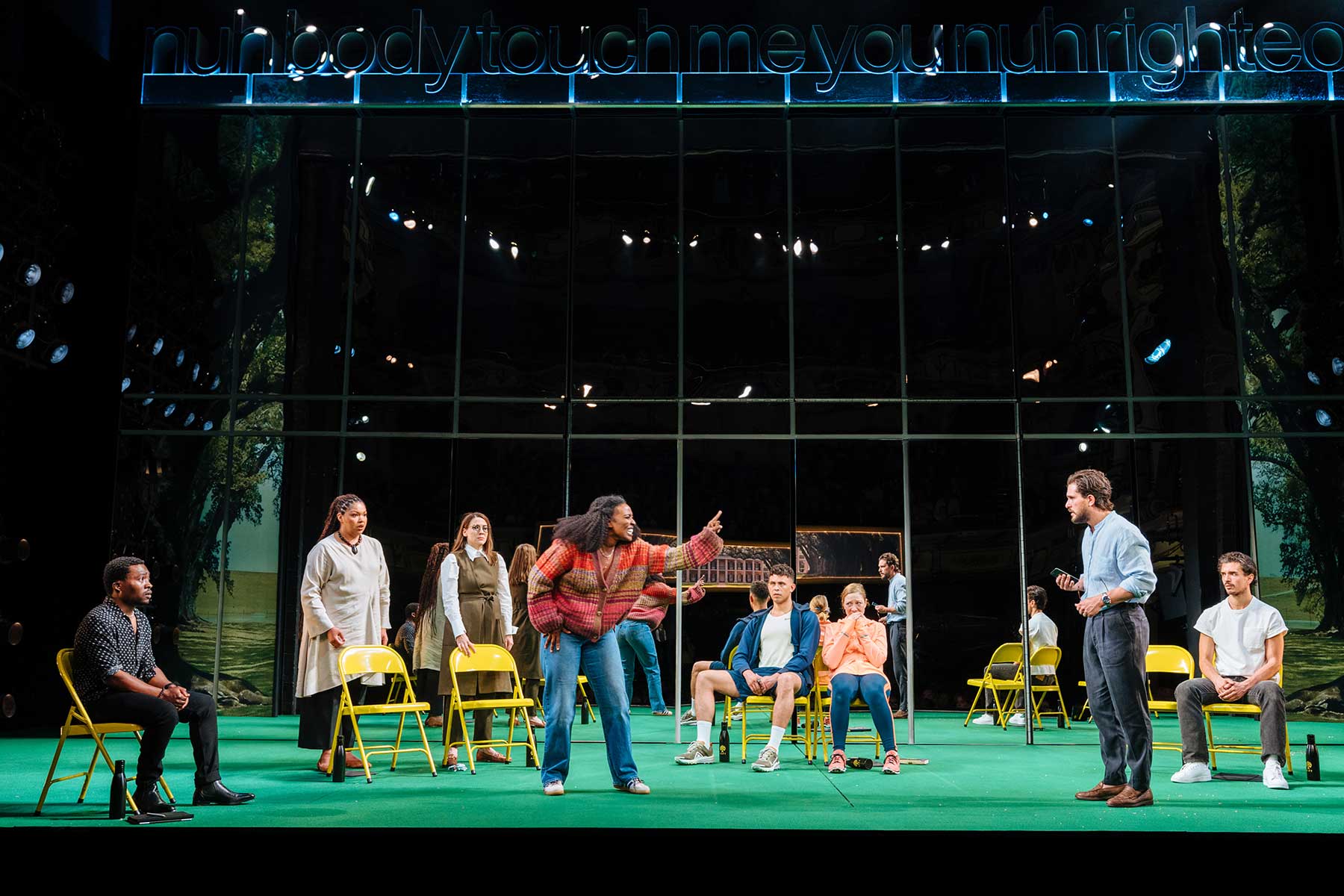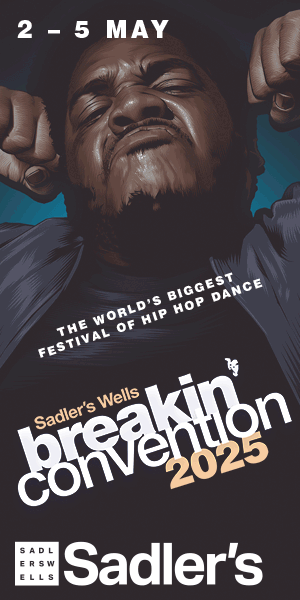
Slave Play, written by Jeremy O. Harris and directed by Robert O’Hara, has made its way across the pond, coming off-Broadway to debut at the West End’s Nöel Coward Theatre.
The controversial show explores the complicated dynamics in interracial relationships, namely the cognitive dissonance they can raise about our racial identities, desire, and power imbalances at play. Introducing the taboo fetish, race play, O. Harris pushes the audience to consider how far we’re willing to go to resolve our deepest internal conflicts.
We’re introduced to couples, each with one person with black or mixed heritage and the other, white, in the role of slaves and slave-masters in the antebellum deep South. The couples, Kaneisha (Olivia Washington) and Jim (Kit Harington), Alana (Annie McNamara) and Phillip (Aaron Heffernan), and Gary (Fisayo Akinade) and Dustin (James Cusati-Moyer), each enact a racially degrading sexual encounter.
Each scene provides easter eggs alluding to its reality as modern kink. Kaneisha wants to twerk to Rihanna, Alana pulls out a black rubber dildo, and Dustin strips down to reveal his Calvin Klein’s.
All makes sense when Jim calls the safe word, and the couples transition into a therapy session with lesbian couple, Teá (Chalia La Tour) and Patricia (Irene Sofia Lucio). The couples have actually been engaging in a novel therapy designed to reignite their sex lives.
The therapists explain their method of ‘Antebellum Sexual Performance Therapy’. The two Yale grads devised the therapy to cure black people of ‘Racially Inhibited Syndrome’, a disorder causing emotional and sexual stuntedness.
“Prepare to be captivated, disturbed, and disorientated all at once”
Teá and Patricia encourage the couples into radical honesty about the experiences of the role play and their interracial relationships. All come to revelations, however messy. The black partners finally express the traumatic racial dynamics they’ve endured. The white partners are exposed to their complicity in white supremacy.
Jim, however, typically British, dismisses the therapy entirely. His rejection causes a visceral reaction in Kaneisha, and her anger ends the session. In the third act of the show, we join them in their post-therapy reflections.
Kaneisha has had a revelation, rejecting the RID syndrome and relabelling whiteness as the actual ‘virus’. Desperate to make things better, Jim engages Kanesha in an aggressive ‘consensual non-consent’ race play. Despite her changing her mind, he doesn’t stop.

Slave Play is undoubtedly multi-layered. It’s the type of show you could watch repeatedly and still find something new. Beyond the shock value of the opening scenes, the conversations it raises around racial dynamics are desperately needed.
Not knowing quite what to expect from Slave Play, I was surprised to see many of my own experiences on stage. As a mixed-race person, interracial dynamics are part of every relationship I have, and I appreciate seeing this exploration.
The commitment of the actors made all the couple dynamics believable. Washington stood out with her depiction of freshly unleashed rage, and McNamara charmed with her hilarious portrayal of a horny slave master’s wife and then an oblivious and overzealous white woman. But honestly, all the acting was terrific.
Part of the controversy around Slave Play concerns the validity of race play itself. By nature, the kink scene attends to the deepest taboos in society. O. Harris has braved putting the underground into the spotlight, but unsurprisingly, not everyone was ready.
The audience was expectedly uncomfortable during the race play scenes. The scenes felt shocking, perverse, drenched in absurdity, and wildly funny. Although I openly laughed where it felt natural, I was constantly aware of whether others were laughing too. With a mixed but predominantly white audience, the sense of humour reflected was very varied.
Although these raunchy scenes were entertaining, the audience dynamics have left me uneasy. Being surrounded by a white audience laughing at the ‘dumb mulatto house slave’ caricature felt like being witness to a minstrel show.
Although that was probably the point, seeing Slave Play during a Black Out night might have saved me from an experience I’d rather not have had. I wasn’t expecting the audience to steal so much of my attention, but the mirrored set confirmed this intention.
Even if I didn’t enjoy it, it’s important social commentary. I can’t imagine what it must be like to perform these characters, but it does remind me of William Henry Lane and Thomas Dilward, who completely subverted minstrel shows in the 1840’s, as the first Black men to perform these characters. A deliberately ironic reclamation.
My favourite part of this show was the concept of RID, and its dismantling. The individualistic pathologisation of racial trauma is a damaging pervasive narrative that is still perpetuated. RID reminded me of ‘Drapetomania’, the disease defined in 1851 that supposedly explained Black slaves running away. I cringed when RID was described and finally exhaled when Kanesha’s rage tore it all down.
Slave Play leaves you with questions rather than answers, reflecting the current state of affairs surrounding race. It’s cutting-edge, and I’d highly recommend it, but be mindful about who you watch it with. Prepare to be captivated, disturbed, and disorientated all at once.
Need to know: Slave Play runs at the Nöel Coward Theatre until 21 Sept 2024. See listing.





























